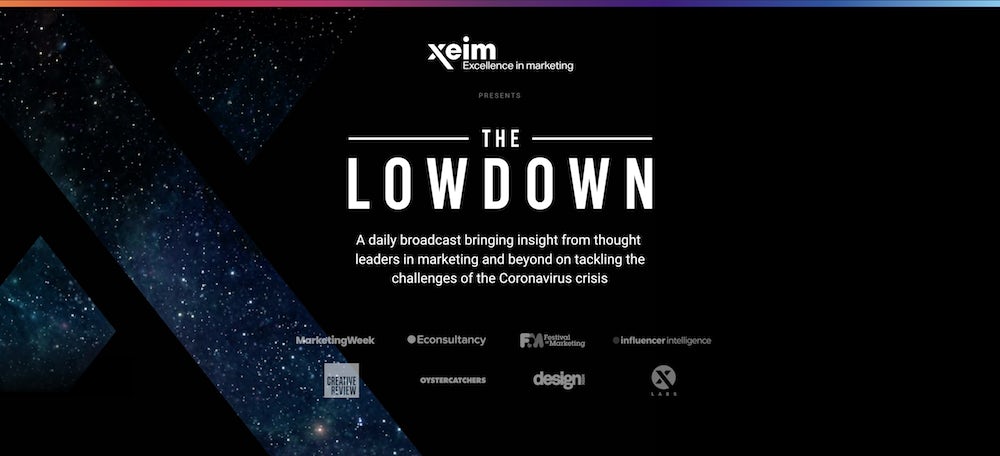Now, as the impact of the virus continues to be felt across industries and within local communities, brands are carving out more measured responses that are also being woven into wider marketing campaigns. While some, such as Pret, are focusing on philanthropic efforts, others, like Ford, are drawing on brand heritage to reassure consumers.
Nike is another brand that has managed to strike a balance with its response, creating a new campaign that highlights its brand purpose, as well as its wider aim of inspiring people through the power of sport. Patricio Roberts recently named Nike as one of the brands using Covid-19 to bolster content marketing, but here’s more of an-depth look at Nike’s latest activity, and why it is effective.
Emotional branding
Nike is a master of emotional branding, typically using the themes of determination, inspiration, and performance to engage consumers. This is often depicted in the context of professional sport, but more often than not, it is from the (relatable) perspective of anyone who leads an active lifestyle. At a time when everyone’s day-to-day activity has been disrupted – including both global athletes and humble joggers – Nike has created a campaign that aims to unite us all in our ‘new normal’.
The ‘Play for the World’ campaign, created by Wieden + Kennedy, reinforces the message that we must all do our bit for the world and ‘play inside’.
The campaign’s latest ad, ‘You Can’t Stop Us’, includes images and video footage of people working out in their homes, be it in their kitchens, bathrooms, bedrooms, or basements. As well as a few famous faces, including basketball star LeBron James and volleyballer Sara Hughes, the ad features lesser-known and unknown fitness fans to reinforce the sense that we are all in it together.
The campaign is particularly clever in how it reinforces Nike’s core purpose; still managing to inspire consumers even in the midst of such unusual and difficult circumstances.
Actionable content
It’s all well and good for brands to encourage the public to do take a specific course of action, but this message can seem a little trite or patronising on its own. Nike ensures that its message of ‘Play Inside’ resonates by actually offering consumers something to help them do so. In this case, it is the ‘Living Room Cup’ – a digital workout series where athletes set challengers for users to take part in at home.
Cristiano Ronaldo was the first person to set a challenge, inviting users to try and beat his ‘core crusher’ abs workout, and to tag themselves using the hashtags #playinside and #thelivingroomcup. Not only does the series help to reinforce the message of staying home, but the premise also incentivises and inspires users through sport, by giving them the chance to compete against global athletes.
Elsewhere, Nike has been further encouraging users to exercise at home by streaming free live workout classes every Sunday on YouTube; each one hosted by a ‘Nike Master Trainer’. This is also part of Nike’s pledge to open up its Nike Training Club app to all users free of charge. The app, which is usually subscription-based, offers users a variety of training programmes and workout videos from brand experts.
Helping local communities
Nike has always been committed to helping local communities, using initiatives like the ‘Nike Community Impact Fund’ to support grassroots organisations that focus on sport and physical activity. Since the coronavirus outbreak, Nike has reenforced its commitment to supporting the places where its employees live and work, pledging $17 million towards the fight against Covid-19. Nike stated that “these grants will support on-the-ground organisations that need it the most, such as health, social services and humanitarian organisations, food banks, and Covid-19 response funds.”
Alongside this, Nike has been working to help healthcare workers in the US, by transforming materials from its footwear into PPE equipment. Working with health professionals at Oregon Health & Science University (OHSU), Nike has been able to create a full-face shield, and new lenses for PAPR helmets (to safeguard workers against contaminated air). Again, this reinforces Nike as an authentic brand – one that takes action instead of merely backing a cause.

What can we learn from Nike?
Ensure messaging is authentic
Using a global pandemic as the basis of any marketing campaign is dangerous territory, with consumers more likely to criticise brands who are seemingly capitalising on the opportunity. Nike ensures that its messaging is authentic, however, by creating a campaign that aligns with its fundamental brand values, and using a tone that consumers have come to expect.
Practice what you preach
Finally, Nike doesn’t offer shallow messaging, but a well-rounded and interactive campaign that consumers are able to get involved in. By directly helping those on the front line, and enlisting the help of relevant influencers, Nike also ensures that its campaign resonates with consumers, and reinforces the idea what we are all united in the same cause.


Comments